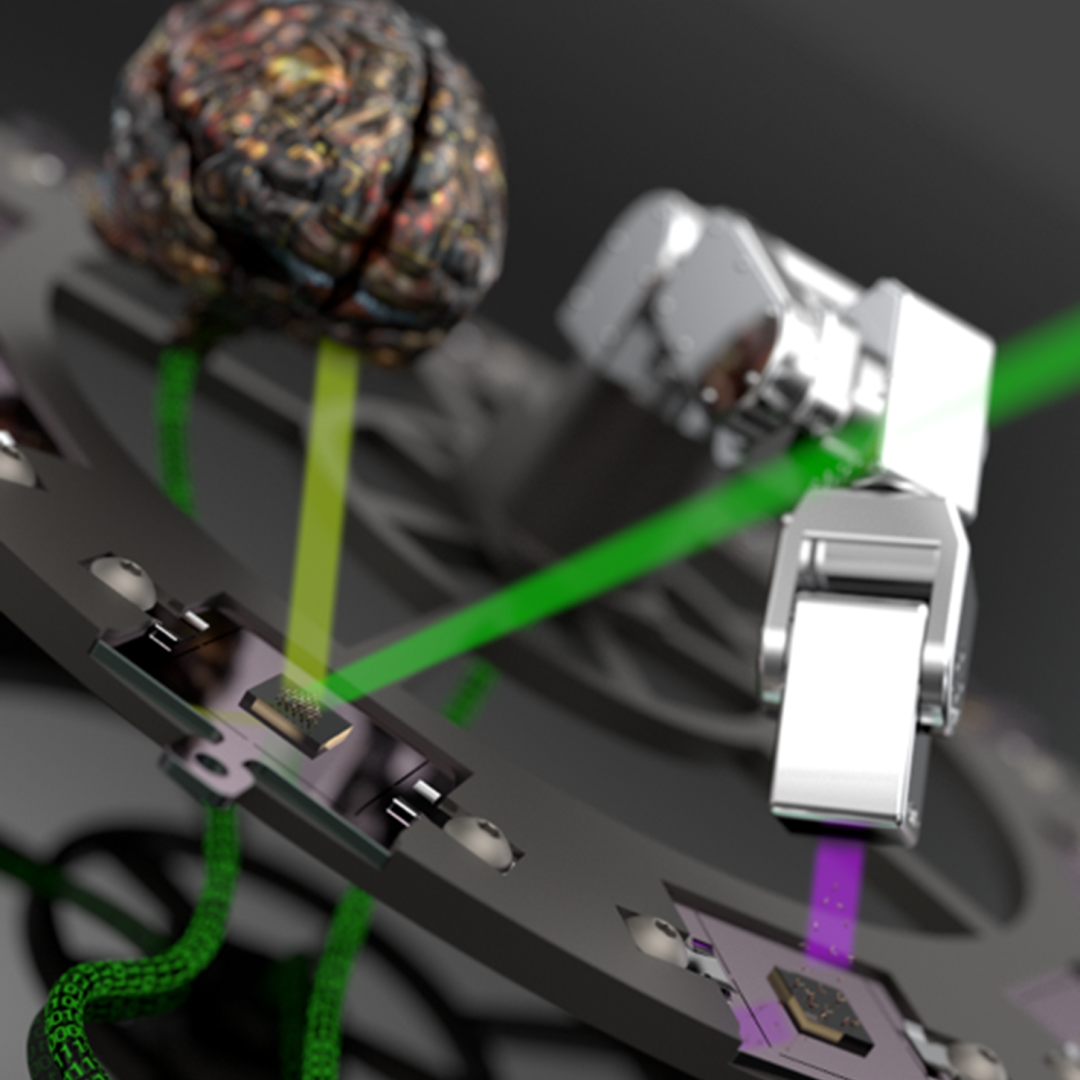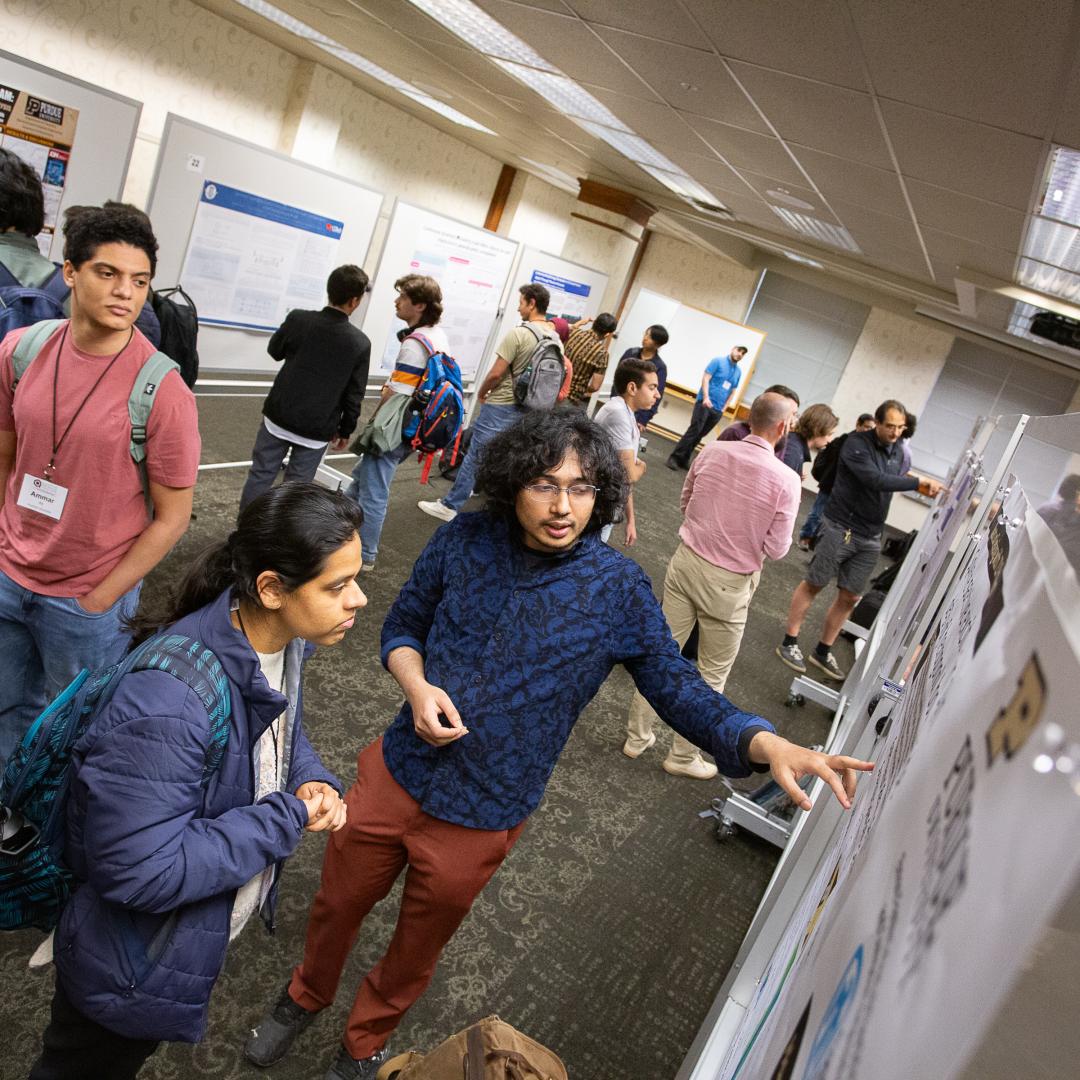Filter News
Area of Research
News Topics
- (-) Artificial Intelligence (4)
- (-) Biotechnology (4)
- (-) Mathematics (4)
- (-) Net Zero (2)
- 3-D Printing/Advanced Manufacturing (12)
- Advanced Reactors (2)
- Big Data (6)
- Bioenergy (17)
- Biology (21)
- Biomedical (8)
- Buildings (9)
- Chemical Sciences (9)
- Clean Water (6)
- Climate Change (15)
- Composites (2)
- Computer Science (13)
- Coronavirus (6)
- Critical Materials (1)
- Cybersecurity (6)
- Decarbonization (15)
- Energy Storage (14)
- Environment (37)
- Exascale Computing (3)
- Frontier (3)
- Fusion (7)
- Grid (7)
- High-Performance Computing (9)
- Hydropower (2)
- Isotopes (9)
- ITER (1)
- Machine Learning (5)
- Materials (7)
- Materials Science (12)
- Mercury (4)
- Microscopy (9)
- Nanotechnology (6)
- National Security (15)
- Neutron Science (8)
- Nuclear Energy (14)
- Physics (16)
- Polymers (5)
- Quantum Computing (1)
- Quantum Science (2)
- Security (6)
- Simulation (4)
- Summit (2)
- Sustainable Energy (13)
- Transportation (12)
Media Contacts
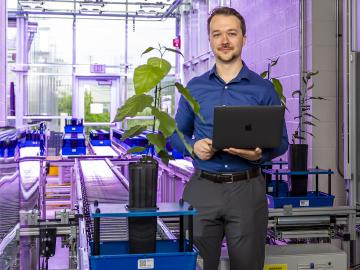
John Lagergren, a staff scientist in Oak Ridge National Laboratory’s Plant Systems Biology group, is using his expertise in applied math and machine learning to develop neural networks to quickly analyze the vast amounts of data on plant traits amassed at ORNL’s Advanced Plant Phenotyping Laboratory.
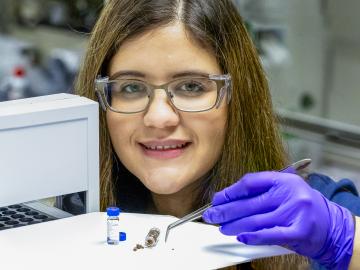
Ilenne Del Valle is merging her expertise in synthetic biology and environmental science to develop new technologies to help scientists better understand and engineer ecosystems for climate resilience.
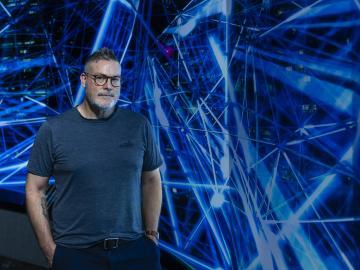
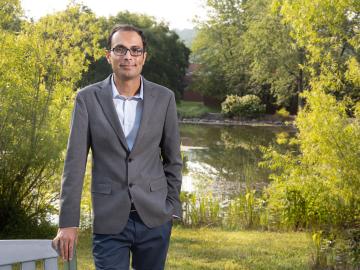
Growing up exploring the parklands of India where Rudyard Kipling drew inspiration for The Jungle Book left Saubhagya Rathore with a deep respect and curiosity about the natural world. He later turned that interest into a career in environmental science and engineering, and today he is working at ORNL to improve our understanding of watersheds for better climate prediction and resilience.
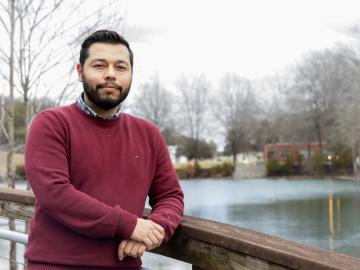
Hydrologist Jesús “Chucho” Gomez-Velez is in the right place at the right time with the right tools and colleagues to explain how the smallest processes within river corridors can have a tremendous impact on large-scale ecosystems.
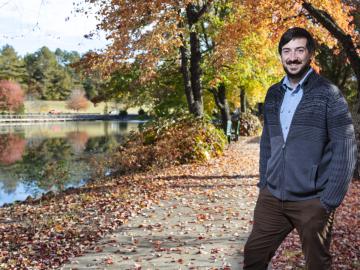
Matthew Craig grew up eagerly exploring the forest patches and knee-high waterfalls just beyond his backyard in central Illinois’ corn belt. Today, that natural curiosity and the expertise he’s cultivated in biogeochemistry and ecology are focused on how carbon cycles in and out of soils, a process that can have tremendous impact on the Earth’s climate.
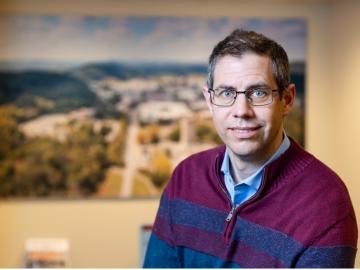
What’s getting Jim Szybist fired up these days? It’s the opportunity to apply his years of alternative fuel combustion and thermodynamics research to the challenge of cleaning up the hard-to-decarbonize, heavy-duty mobility sector — from airplanes to locomotives to ships and massive farm combines.
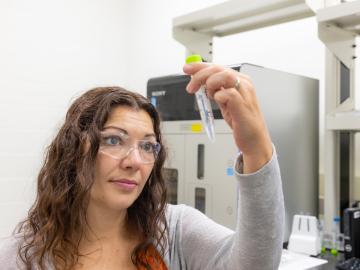
Carrie Eckert applies her skills as a synthetic biologist at ORNL to turn microorganisms into tiny factories that produce a variety of valuable fuels, chemicals and materials for the growing bioeconomy.
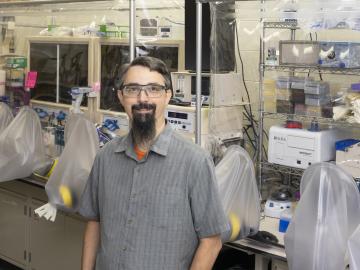
As a metabolic engineer at Oak Ridge National Laboratory, Adam Guss modifies microbes to perform the diverse processes needed to make sustainable biofuels and bioproducts.
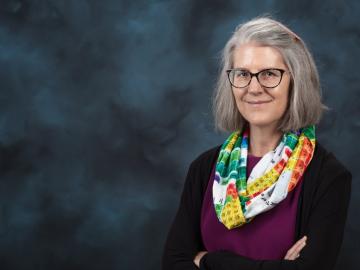
Deborah Frincke, one of the nation’s preeminent computer scientists and cybersecurity experts, serves as associate laboratory director of ORNL’s National Security Science Directorate. Credit: Carlos Jones/ORNL, U.S. Dept. of Energy


